I'm trying to limit the number of words allowed in a summernote.
example, I want to limit up to 50 words only.
Do you have any idea?
$(document).ready(function() {
$('#summernote').summernote({
height: 20,
});
});
I'm trying to limit the number of words allowed in a summernote.
example, I want to limit up to 50 words only.
Do you have any idea?
$(document).ready(function() {
$('#summernote').summernote({
height: 20,
});
});
Thought I would contribute to this post as this helped me arrive to my desired solution. It seems the suggested answer has not been accepted.
I created a variable for maxLength and the following is how I configured summernote callbacks. Please note the version of summernote I am using has the editing area as .note-editable. The solution below is typescript and I have a span that I target which displays the remaining character count.
callbacks: {
onKeydown(e) {
// The text method will ignore HTML tags and preserve non-breaking
// space allowing for a true character count
let content: string = $('.note-editable').text();
// This checks if the character is alphanumeric (i.e. not a backspace or return key)
let isCharacter: boolean = (/[a-zA-Z0-9-_ ]/.test(String.fromCharCode(e.keyCode)));
// If the current content length is at max, preventDefault will disallow
// any more characters
if (isCharacter) {
if (content.length >= maxLength) {
e.preventDefault();
}
}
},
onKeyup(e) {
// After the result of checking the character and max length exceeded,
// take the resulting count and determine and display characters remaining
let content: string = $('.note-editable').text();
let charactersRemaining: number = maxLength - content.length;
$('#SomeDivId span').text(charactersRemaining);
}
var maxwords = 100;
$(".summernote").summernote({
height: '200px',
callbacks: {
onKeydown: function (e) {
var t = e.currentTarget.innerText;
var words = t.split(" ");
if (words.length >= maxwords) {
//delete key
if (e.keyCode != 8)
e.preventDefault();
// add other keys ...
}
},
onKeyup: function(e) {
var t = e.currentTarget.innerText;
var words = t.split(" ");
if (words.length >= maxwords) {
//delete key
if (e.keyCode != 8)
e.preventDefault();
// add other keys ...
}
},
onPaste: function(e) {
var t = e.currentTarget.innerText;
var bufferText = ((e.originalEvent || e).clipboardData ||
window.clipboardData).getData('Text');
e.preventDefault();
var all = t + bufferText;
var words = all.split(" ");
var array = words.slice(0, maxwords)
document.execCommand('insertText', false, array.join(" "));
}
}
});
Words vs Characters: I suggest that you decide on the number of characters rather than words because that is easy and consistent even for the user.
Summernote creates contenteditable divlike below:

With this knowledge and using the below answer, you can achieve a solution where you can restrict the number of characters: Limiting Number of Characters in a ContentEditable div